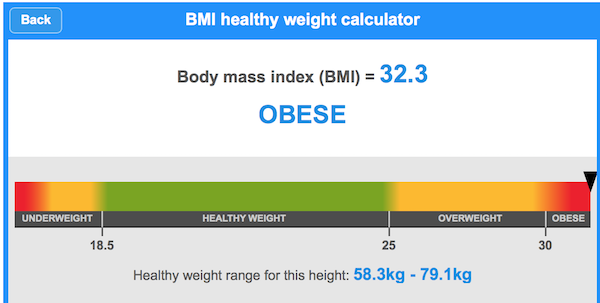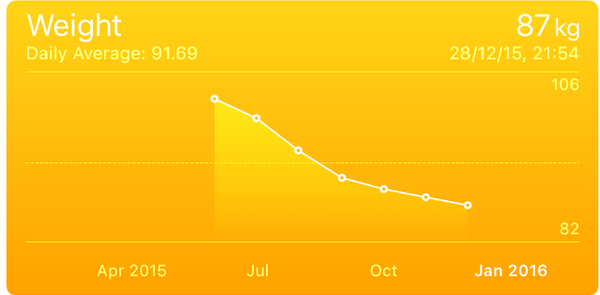Obesity
I wonder how many of us have truly thought what it means to be obese?
Of course I am sure, like me, most people have long had a loose understanding of obesity. It is a term that we could hardly be unaware of. There are countless news reports on the subject, often quoting studies into the ill-effects on our health that can manifest from obesity or discussing some current or future obesity epidemic.
Even the smallest effort placed into actually reading about this topic, demonstrates the extent of the issue. According to Scottish Government statistics:
In 2014, 65% of adults aged 16 and over were overweight, including 28% who were obese.
The numbers may well be different in your country, but at the time of writing the most up-to-date figures from the World Health Organisation reveal there are more than 600 million obese adults worldwide, and a McKinsey Global Institute report estimates the annual economic impact of obesity as US$ 2 trillion.
However, if I am honest, I have long known about this wider context. I have always just thought of obesity as a problem for other people - you know, governments who have to pick up the health bill, and all those obese folk!
Definition
So, what is obesity? Essentially a person that carries enough excess body fat that it has a detrimental effect on their health is considered obese. Typically a person’s relative weight is classified using their Body Mass Index (BMI).
BMI is defined as the ratio: BMI = height in metres / (weight in kilograms)2
There are many online tools which will calculate your BMI for you, including converting from imperial units if that is more your thing.
An individual’s BMI is generally classified as follows:
- a BMI below 18.5 is underweight
- a BMI greater than or equal to 18.5 but below 25 is normal weight
- a BMI greater than or equal to 25 is overweight
- a BMI greater than or equal to 30 is obese
Note: this does not apply universally, some countries have different classifications to suit differences in their populations, e.g. in Japan, a BMI of 25 or greater is considered obese.
The Problem
Without any real planning I have unexpectedly stumbled into middle-age. My jobs, at least since I hit my 20s, have been essentially sedentary - as much as a teacher stands up or walks around, let’s not get carried away by thinking that is exercise. And I haven’t really kept up with the trend towards standing desks (or even treadmill desks, yup you read that correctly) that the development community have now embraced for some time.
I don’t climb as many hills as I used to, and cycling had become a distant memory. I might be carrying a few extra pounds (even as I type ‘pounds’ it sounds less than ‘kilograms’). But obese? Come on now, that’s for all those obese folk, remember?
Well, on the 8 July 2015 an idle notion1 came upon me to check my BMI.

And there it was. Obese. In actual fact I weighed in at 101.8 Kg (a little over 16 stones in old money). And according to guidelines I should be no more than 79 Kg. Obesity was no longer some naive idea of a much heavier version of myself, rather it was something much more prevalent and significantly closer to home than I had thought to imagine.
So now I have a problem I didn’t think I had before. Or a set of problems. A greater risk of heart disease, stroke, diabetes, a variety of cancers, and a host of other ailments that a quick Google search will be happy to list.
And about now, if you have not already worked it out, I should really include a disclaimer:
At least I had a suggested solution. I only needed to lose 22.8 Kg (or almost 4 stones, which sounds just a wee bit more than that “few extra pounds”).
Method & Tools
Anyone can eat a bit less, or a bit healthier. Anyone can join a gym, or take up [parkour][10]. But whatever is started needs to be sustained. Sustained through cold, damp Winter days when you just can’t face leaping off of rooftops or somersaulting over railings2.
[10]: https://www.youtube.com/watch?v=NX7QNWEGcNI ‘YouTube video: “The World’s Best Parkour and Freerunning”’
I knew I needed to to do two things on top of simply changing my diet and activity levels:
- set realistic goals
- effectively track progress
These would allow me to monitor progress, as well as provide meaningful feedback on my performance towards my goal(s) in order to provide ongoing motivation.
The broad goal I already knew: a target weight. The smaller, intermittent goals are more appropriately the subject of a discussion in their own right, but they needed to work towards that final goal state.
The tracking was easy, and also might benefit from more in depth discussion. I tracked my food intake with the MyFitnessPal service, using their iPhone app (although I understand they support other platforms). A newly acquired Apple Watch proved to be invaluable at tracking exercise as well as general activity throughout each day.
Progress
Almost six months in and I still not done. Although, my next challenge will no doubt be coming to terms with the fact that I can never be “done”. But in those months I have managed to chip away at two-thirds of my goal:

The graph shows the rate of weight loss decreasing. Partly, no doubt, because the process gets harder the nearer to the goal I get, but also because it is just that bit more of a chore to tackle this problem alongside a hectic Winter Term at school - which leads to a final observation for this post…
Health & Wellbeing
Health and wellbeing is increasingly at the forefront of corporate interest and now the subject of government scrutiny. The impact of a workforce in poor health is absenteeism and lower performance.
In education, there has rightly been an increasing focus on the health and wellbeing of our students in recent years - both in terms of pastoral care and in the curriculum. This has begun to extend to governments and schools understanding that the wellbeing of their teachers is just as vital. It seems somewhat self-evident to me that as we entrust the safety and happiness of our children to the teaching profession it is essential that the profession is itself awash with teachers who feel safe and happy. Again, perhaps, a discussion for another day.
But as individuals, teachers, professionals (of any profession) we shouldn’t leave our health and wellbeing to the whim of government or employers. There is is much that can be done to take responsibility for our own health and wellbeing.
Look after yourself.
-
In fact, I was evaluating an iTunes U course developed by Plymouth University for use by some of my pupils. The iOS Development in Swift course builds a BMI calculator as an example app. ↩︎
-
Just for clarity, I haven’t taken up parkour. I have started cycling again though. ↩︎